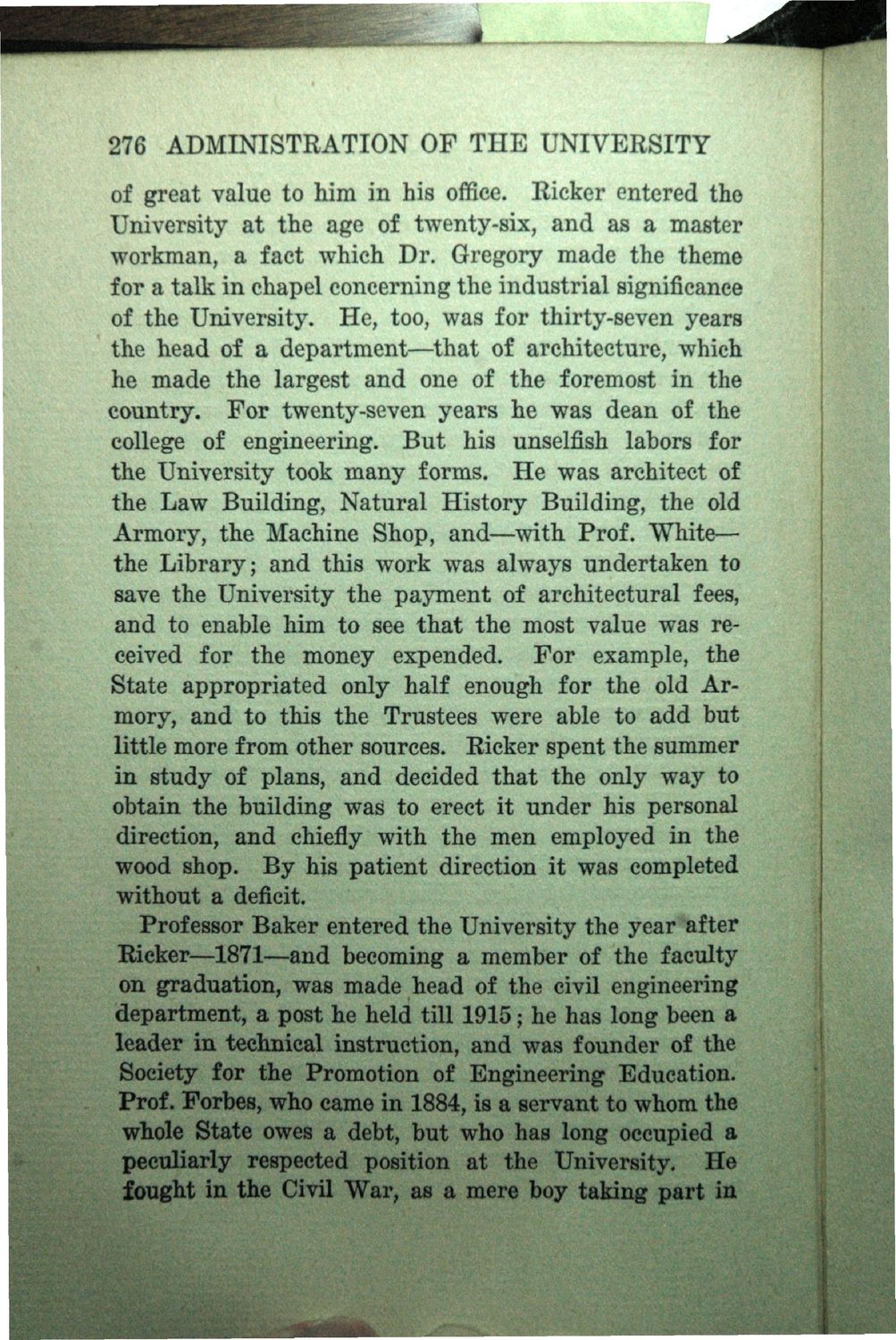| |
| |
Caption: Book - History of the University (Nevins)
This is a reduced-resolution page image for fast online browsing.

EXTRACTED TEXT FROM PAGE:
276 ADMINISTRATION OF THE UNIVERSITY of great value to him in his office. Ricker entered the University at the age of twenty-six, and as a master workman, a fact which Dr. Gregory made the theme for a talk in chapel concerning the industrial significance of the University. He, too, was for thirty-seven years the head of a department—that of architecture, which he made the largest and one of the foremost in the country. For twenty-seven years he was dean of the college of engineering. But his unselfish lahors for tiie University took many forms. He was architect of the Law Building, Natural History Building, the old Armory, the Machine Shop, and—with Prof. White— the Library; and this work was always undertaken to save the University the payment of architectural fees, and to enable him to see that the most value was received for the money expended. For example, the State appropriated only half enough for the old Armory, and to this the Trustees were able to add but little more from other sources. Ricker spent the summer in study of plans, and decided that the only way to obtain the building was to erect it under his personal direction, and chiefly with the men employed in the wood shop. ^ By his patient direction it was completed without a deficit. Professor Baker entered the University the year after Ricker—1871—and becoming a member of the faculty on graduation, was made head of the civil engineering department, a post he held till 1915; he has long been a leader in technical instruction, and was founder of the Society for the Promotion of Engineering Education. Prof. Forbes, who came in 1884, is a servant to whom the whole State owes a debt, but who has long occupied a peculiarly respected position at the University. He fought in the Civil War, as a mere boy taking part in
| |